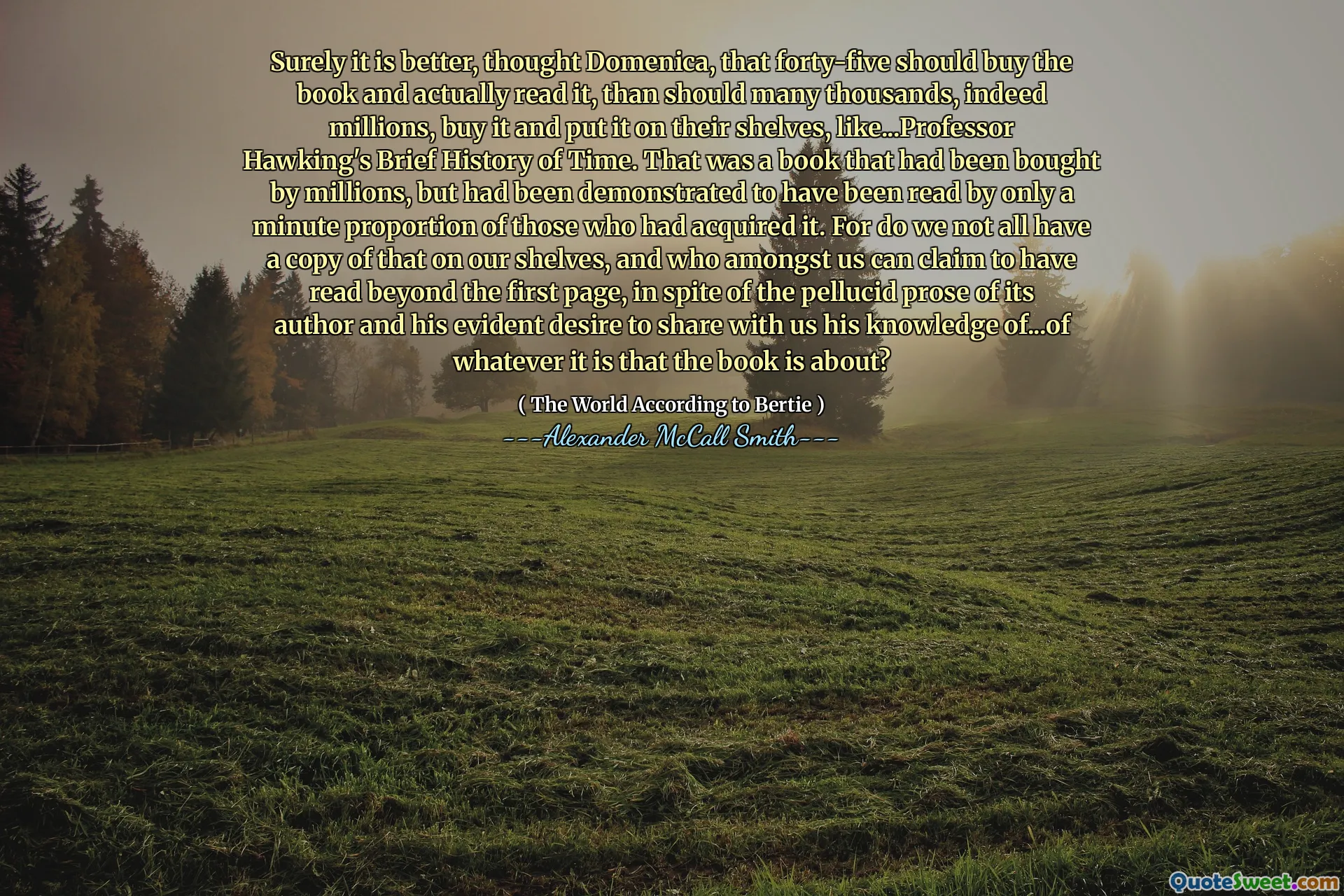
多梅尼卡认为,肯定比数百万,实际上要购买并将其放在货架上的数千个,就像...霍金教授的简短时光历史一样,要比成千上万的数百万,购买并将其放在货架上。那是一本书被数百万购买的书,但已被证明已被读过一分钟的收购人。因为我们并不是所有人都在货架上有一份副本,尽管我们中间可以声称自己在第一页上读过,尽管其作者的散文及其作者的散文以及他与我们分享他的知识的明显愿望。这本书的内容是什么?
(Surely it is better, thought Domenica, that forty-five should buy the book and actually read it, than should many thousands, indeed millions, buy it and put it on their shelves, like...Professor Hawking's Brief History of Time. That was a book that had been bought by millions, but had been demonstrated to have been read by only a minute proportion of those who had acquired it. For do we not all have a copy of that on our shelves, and who amongst us can claim to have read beyond the first page, in spite of the pellucid prose of its author and his evident desire to share with us his knowledge of...of whatever it is that the book is about?)
多梅尼卡(Domenica)反映了这样的想法,即对少数人真正互动而不是让许多人在没有阅读的情况下拥有它更有价值。她将自己的想法与围绕史蒂芬·霍金(Stephen Hawking)的《短暂的时间历史》(Trime of Time)的现象进行了对比,并指出,当它被数百万人购买时,很少有人实际上读过它经过初始页面。这引发了关于所有权的有意义的问题,而当它不涉及智力参与时。
这种评论突出了文献中的共同趋势,其中许多书籍更多地用作书架上的状态符号,而不是知识和理解的来源。多梅尼卡(Domenica)似乎倡导对文学的更深入的欣赏,强调真正的好处来自阅读和理解材料,而不是简单地收集书籍。










